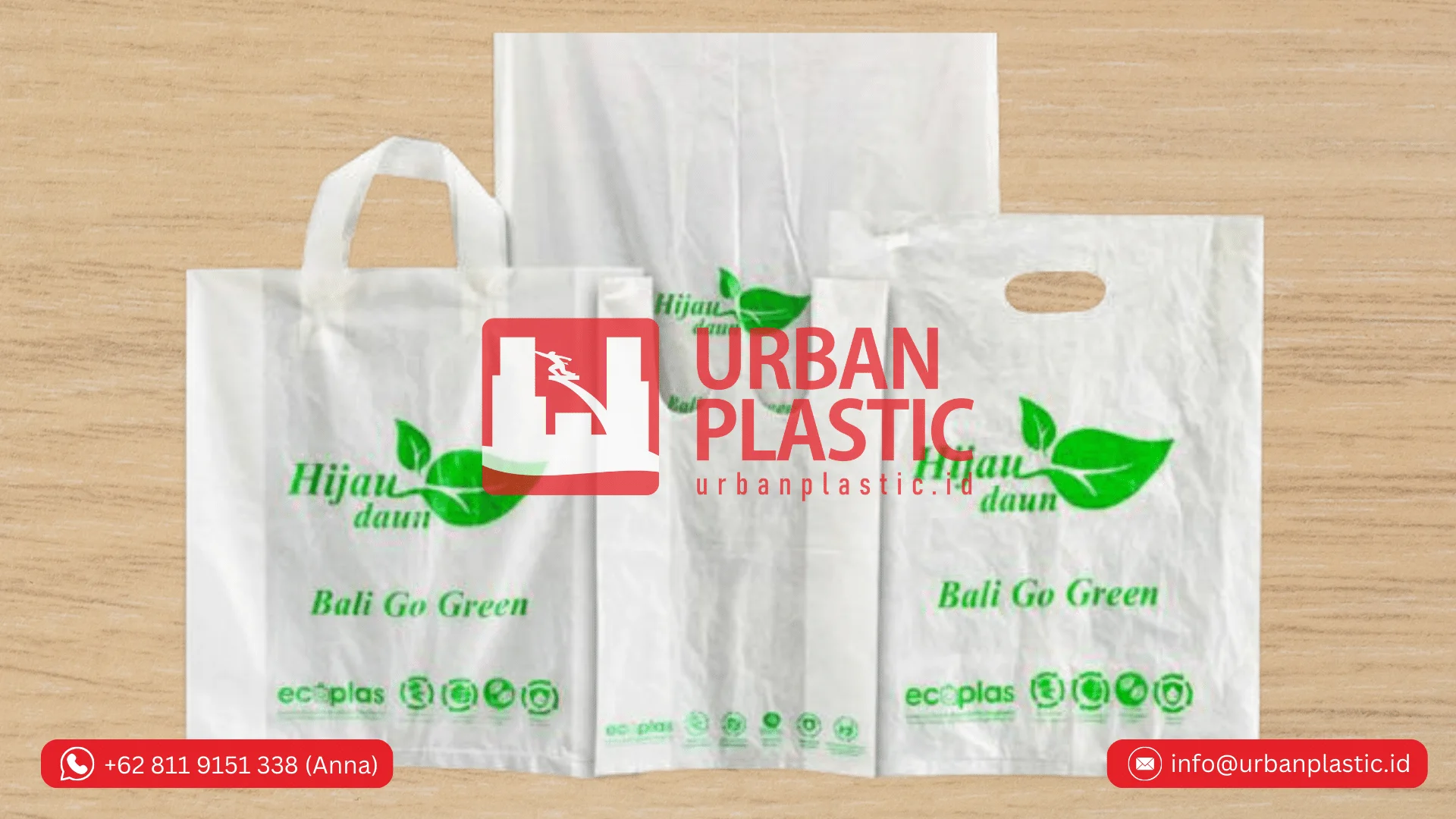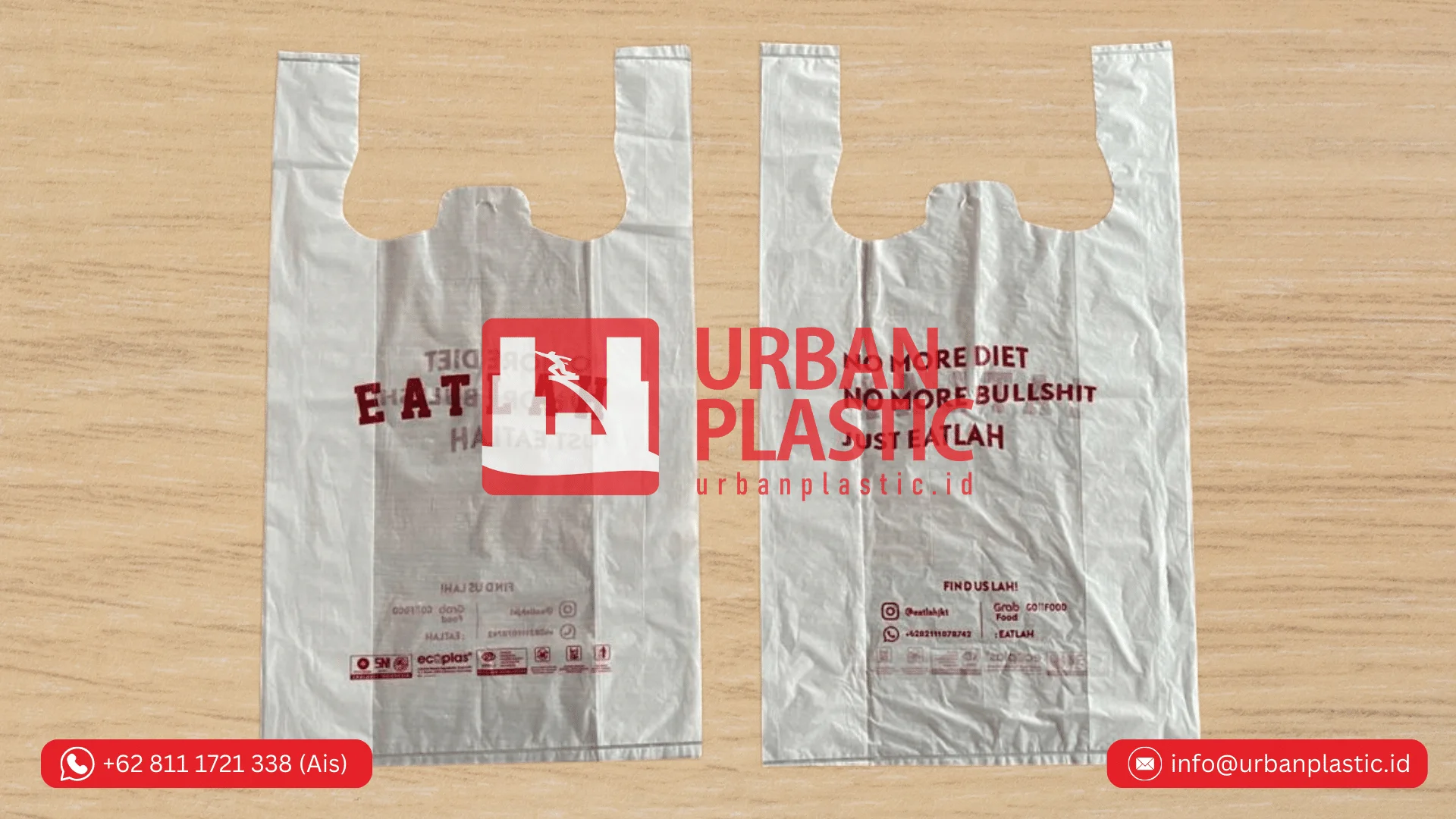In a world propelled by the urgency to reduce plastic waste, innovative solutions are emerging from unexpected corners. One such solution lies within the tropical landscapes of Indonesia, where cassava plastic exporters are paving the path to a greener future. With sustainability at the forefront, these exporters are harnessing the power of cassava, a renewable and biodegradable resource, to create eco-friendly alternatives to traditional plastics.
Indonesia, known for its abundant cassava production, has become a key player in the global efforts to combat plastic pollution. Through their innovative manufacturing processes, cassava plastic exporters are able to create a range of products, from packaging materials to cutlery, that are not only environmentally friendly but also cost-effective.
By replacing conventional plastics with cassava-based alternatives, these exporters are addressing the growing demand for sustainable solutions without compromising on quality or functionality. With their commitment to reducing the environmental impact of plastic waste, cassava plastic exporters in Indonesia are not just pioneering a new industry but also creating a blueprint for a greener future.
Join us as we explore the incredible efforts of these Indonesian exporters and their contribution to a more sustainable world. Discover the remarkable potential of cassava plastics and the positive impact they are making on our planet.


The environmental impact of traditional plastics
Traditional plastics have had a devastating impact on the environment. Made from non-renewable resources, such as fossil fuels, they take hundreds of years to decompose and contribute to the ever-growing problem of plastic pollution. The production and disposal of traditional plastics release harmful greenhouse gases, contributing to climate change and endangering ecosystems worldwide.
Moreover, the widespread consumption of single-use plastics has led to a global waste management crisis. Plastic waste often ends up in landfills or finds its way into rivers and oceans, posing a significant threat to marine life and human health. The need for sustainable alternatives to traditional plastics has never been more urgent.
The rise of cassava plastic as an alternative
Cassava, a starchy root vegetable native to South America, has emerged as a promising alternative to traditional plastics. Indonesia, with its favorable climate and extensive cassava cultivation, has become a hub for cassava plastic production. The starch extracted from cassava can be processed into bioplastics that have similar properties to conventional plastics but with the added benefit of being biodegradable and compostable.
Cassava plastics offer a sustainable solution to the plastic waste problem. Unlike traditional plastics, they can break down naturally within months, minimizing their impact on the environment. Additionally, cassava is a renewable resource that can be grown and harvested relatively quickly, making it an ideal raw material for eco-friendly plastics.
The benefits of cassava plastic
The use of cassava plastic offers numerous benefits over traditional plastics. Firstly, cassava plastic is biodegradable, meaning it can decompose naturally without leaving behind harmful microplastics. This reduces the risk of pollution and ensures a cleaner environment for future generations.
Secondly, cassava plastic is compostable, making it suitable for organic waste management systems. It can be easily broken down into organic matter, enriching the soil and supporting sustainable agriculture practices. This closed-loop system promotes circular economy principles and minimizes the use of finite resources.
Furthermore, cassava plastic retains the durability and versatility of traditional plastics. It can be molded into various shapes and sizes, making it suitable for a wide range of applications. From food packaging to household goods, cassava plastic offers a sustainable alternative without compromising on functionality.
Cassava plastic production process
The production of cassava plastic involves several key steps. First, cassava roots are harvested and cleaned to remove any dirt or impurities. The roots are then grated or ground into a pulp, which is mixed with water and strained to separate the starch from the fiber. The starch is then dried and processed into a fine powder.
Next, the cassava starch powder is mixed with plasticizers, such as glycerol or sorbitol, to improve its flexibility and strength. Additional additives, such as colorants or reinforcing agents, may also be incorporated to meet specific product requirements. The mixture is then heated and extruded into the desired shape, using molds or extrusion machines.
The final step involves cooling and solidifying the cassava plastic products. Once hardened, they can be further processed or packaged for distribution. The entire production process is designed to minimize waste and maximize the use of renewable resources, ensuring a sustainable and eco-friendly outcome.
Cassava plastic exporters in Indonesia
Indonesia has emerged as a leading exporter of cassava plastic products, thanks to its abundant cassava production and the commitment of local manufacturers. These exporters play a crucial role in promoting sustainable practices and reducing the reliance on traditional plastics.
Cassava plastic exporters in Indonesia offer a wide range of products, catering to both domestic and international markets. From biodegradable bags and food containers to disposable cutlery and straws, their innovative solutions are gaining traction among environmentally conscious consumers and businesses.
To ensure the quality and integrity of their products, cassava plastic exporters in Indonesia adhere to stringent manufacturing standards and certifications. They prioritize sustainability in every aspect of their operations, from sourcing cassava from responsible growers to minimizing energy consumption during production.
Challenges faced by cassava plastic exporters
While cassava plastic offers immense potential as a sustainable alternative, exporters in Indonesia face several challenges in scaling up their operations and meeting the increasing demand. One of the main challenges is the need for technological advancements to improve the efficiency and cost-effectiveness of cassava plastic production.
Additionally, the education and awareness of consumers regarding the benefits and proper disposal of cassava plastic products remain crucial. Public perception and acceptance play a vital role in driving the demand for sustainable alternatives and encouraging the use of cassava plastics on a larger scale.
Another challenge lies in the availability and consistency of cassava supply. Fluctuations in weather patterns and pests can affect cassava yields, posing risks to the production and stability of cassava plastic exporters. Collaborations with farmers and the implementation of sustainable farming practices are essential to ensure a steady supply of high-quality cassava.
Success stories of cassava plastic exporters
Despite the challenges, there have been notable success stories among cassava plastic exporters in Indonesia. Many have successfully expanded their operations and gained recognition for their innovative solutions. Their commitment to sustainability and dedication to quality have positioned them as leaders in the cassava plastic industry.
Some exporters have formed strategic partnerships with local communities and farmers, creating a sustainable supply chain that benefits all stakeholders. By providing training and support, these exporters empower farmers to adopt sustainable farming practices and improve the quality of cassava crops.
Furthermore, collaborations with international organizations and government agencies have helped cassava plastic exporters access new markets and promote their products globally. These success stories demonstrate the potential of cassava plastic as a viable and sustainable solution to the plastic waste crisis.
Future prospects of cassava plastic in Indonesia
Looking ahead, the future prospects of cassava plastic in Indonesia are promising. The government and industry stakeholders are increasingly recognizing the importance of sustainable solutions and supporting the growth of the cassava plastic sector.
Investments in research and development are driving technological advancements, making cassava plastic production more efficient and cost-effective. Innovations such as improved biodegradability and increased product durability are expanding the range of applications for cassava plastics, further cementing their position as a sustainable alternative.
Moreover, consumer awareness and demand for environmentally friendly products are on the rise. As more individuals and businesses prioritize sustainability, the market for cassava plastic is expected to grow exponentially. This presents opportunities for existing exporters to expand their operations and for new players to enter the industry.
Conclusion: The role of cassava plastic in a greener future
Cassava plastic exporters in Indonesia are at the forefront of the global movement towards sustainable solutions. Through their innovative processes and commitment to reducing plastic waste, they are paving the path to a greener future.
By harnessing the power of cassava, these exporters offer eco-friendly alternatives to traditional plastics that are both biodegradable and cost-effective. The benefits of cassava plastics, from their reduced environmental impact to their versatility, make them a promising solution to the plastic waste crisis.
As we continue to explore and invest in sustainable alternatives, cassava plastic has the potential to revolutionize the way we consume and dispose of plastics. By supporting cassava plastic exporters in Indonesia and embracing their products, we can all contribute to a more sustainable and greener future for generations to come.
For more information about cassava bag please contact: Whatsapp/Mobile Phone: +62 811 9151 338 (Ms. Anna) or Email :info@urbanplastic.id

